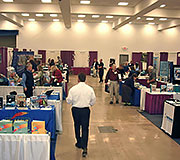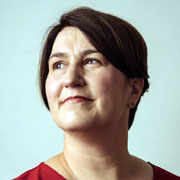Carol Moore
President Elect
Nominee: Dr. Carol Moore

Biographical Information on Nominee
For over thirty years Dr. Carol Moore has advocated and promoted effective science education for North Carolina students. Carol began her professional career as a classroom teacher, working in numerous Catawba County elementary and middle schools. Charged with Science, Mathematics, and Reading instruction, she quickly became recognized for providing challenging, authentic, student-centered learning experiences. Following her tenure in the classroom, Carol worked as the Catawba County Schools K-12 Science Curriculum Specialist managing science kit refurbishment programs, providing an array of professional development opportunities, and building partnerships with local STEM businesses, government, and non-profit organizations. In her role as Specialist, Carol also wrote, secured, and managed multiple grants from GEMS and PBL, Duke Energy Foundation, Corning, Burroughs-Wellcome, Target and other sources that enhanced the teaching and learning of science. Currently, Carol is the Director of STEM West, a regional educational initiative under the umbrella of the Western Piedmont Council of Governments and Workforce Development. Additionally, Carol teaches science methodology courses as an adjunct professor at Lenoir-Rhyne University.
Nationally Board Certified, Carol holds a Bachelor of Science with a Major in Elementary Education (Concentration: Science/Math grades 4-9); a Masters in Middle School Education, Licensure in Curriculum & Instruction; and an Education Doctorate in Educational Leadership from Appalachian State University. Her professional interests focus on project-based learning, robotics, engaging girls in science, and the needs of rural learners. Her expertise in these areas is widely recognized and is evidenced by her numerous presentations at local, state and national science education forums, meetings, and conventions. In 1990 Carol was named the Catawba Middle School Teacher of the Year. She was a state finalist for the 2000 and 2003 Presidential Award for Excellence in Math and Science Teaching and was awarded the SIECOR Math/Science Teacher of the Year in 1998, 2002 and 2004.
Carol has committed herself to educational leadership and service. Her extensive involvement includes supervising student teachers, mentoring beginning teachers, acting as a Discovery Bus Facilitator for NC Teaching Fellows, serving on the North Carolina Textbook Advisory Committee Board and conducting a variety of professional development activities and educator workshops. Carol served ten years on the Catawba Science Center Education Committee and held a position for three years (one of which was in the role of secretary) on the Advisory Council for the Catawba County Extension Agency. She helped establish the STEM West initiative and served on the its Advisory Board. Other leadership roles include that of Forum Ambassador and Panelist for 31st Annual Emerging Issues Forum: Future Work in 2016, and Assistant Faculty for Leadership Assistance for Science Education Reform with Smithsonian Institute in 2012.
Carol is a member of several professional organizations. These include the North Carolina Association of Educators (NCAE); the Catawba County Association of Educators (CCAE); and the National Science Teachers Association. Her participation in the North Carolina Science Leaders Association (NCSLA) is noted for her previous service as the group’s Membership Committee Chair and current position as At-Large District Director. Carol is a long-term member of the North Carolina Science Teachers Association (NCSTA) and has served on various committees and as District 7 Director.
Mission Statement
Having been an active member of NCSTA for my entire 30 - year educational career, I am aware of the importance of networking with colleagues across the state to enhance my classroom craft. As the North Carolina Science Teacher Association president-elect, I will continue to work with these colleagues to provide access for all other teachers of science in North Carolina to have the same opportunities. Each science educator has strengths that need to be identified, honed, and shared and I believe NCSTA plays a key role in these processes. While many of the educational organizations offer one-size-fits-all professional training, the opportunities offered by our members through regional outreach and the annual professional development institutes are differentiated to meet individual teacher needs and interests. Because of the positive influence NCSTA has had on my educational career, I am eager to play my part to give back to the organization.


